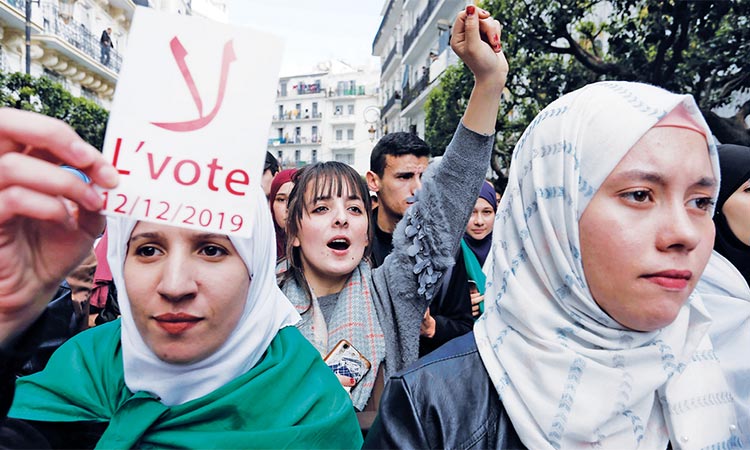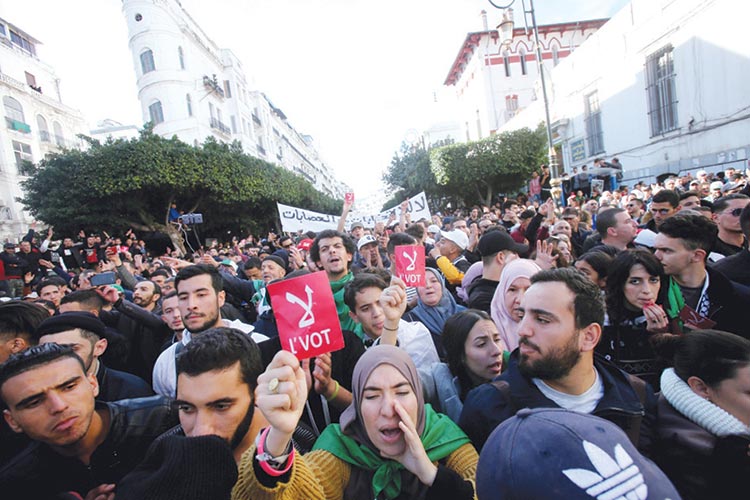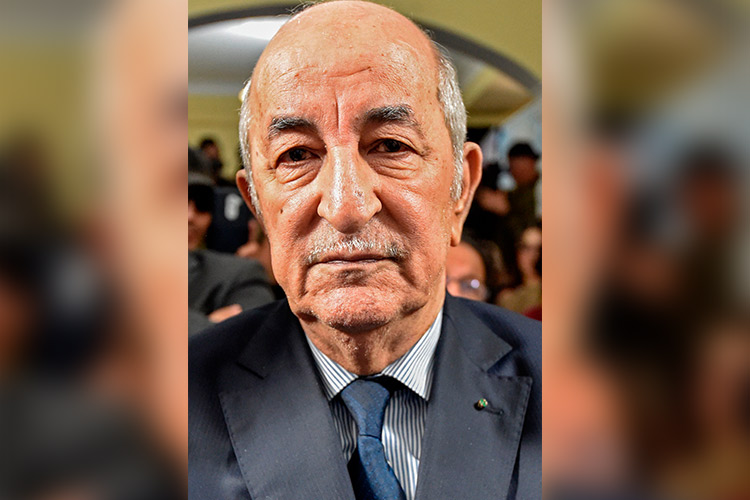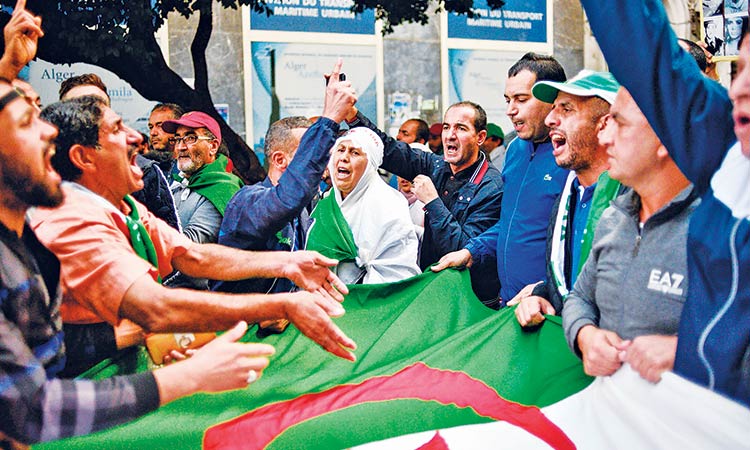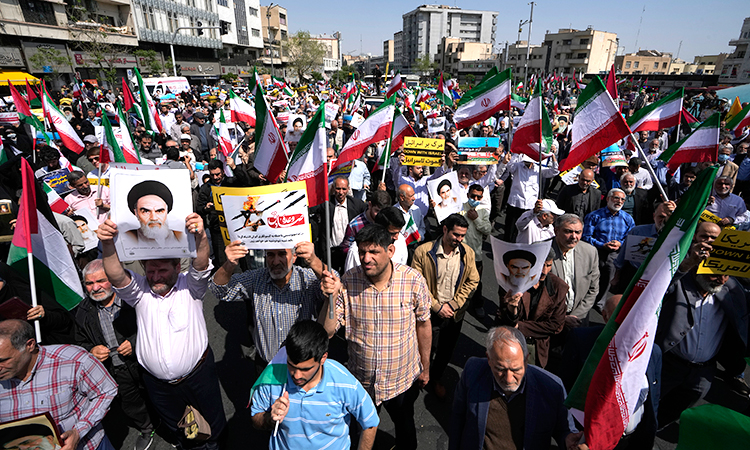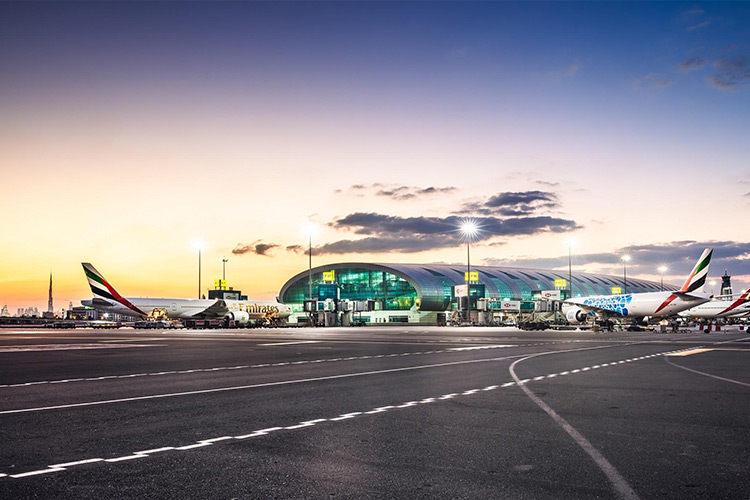Algerians rally demanding top union chief’s removal
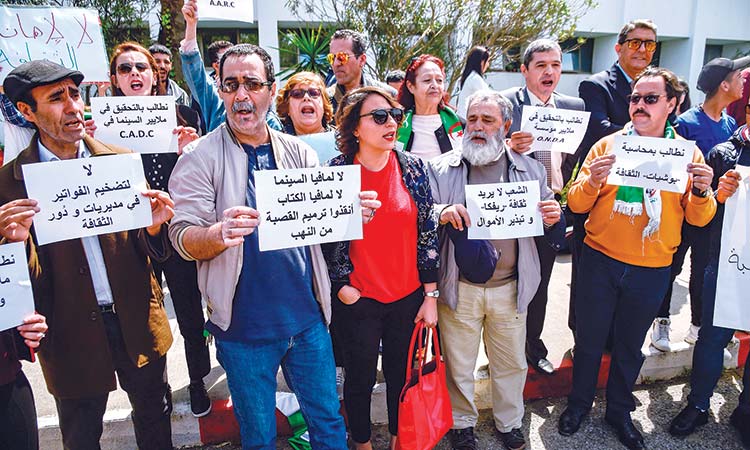
Algerian artists protest against the government outside the Ministry of Culture in Algiers on Wednesday. Agence France-Presse
“Free the union,” read a protesters’ placard outside the powerful General Union of Algerian Workers (UGTA) in the capital Algiers, where Abdelmadjid Sidi Said has been secretary-general since 1997.
A photographer said an estimated 1,000 people rallied for the resignation of Sidi Said, who for years was one of Bouteflika’s most enthusiastic backers and initially supported the ailing leader’s bid for a fifth term.
It was the veteran president’s decision to seek re-election which brought vast crowds onto the streets for weeks of demonstrations, which prompted the 82-year-old to quit on April 2.
After more than a month of mass protests, Sidi Said ultimately welcomed the army chief’s call for Bouteflika to be declared unfit to rule.
Despite the president’s resignation, rallies have continued as protesters push for Bouteflika’s inner circle to step down and a broad overhaul of the political system.
Along with Sidi Said, demonstrators have targeted prime minister Ahmed Ouyahia, who has since been sacked, and tycoon Ali Haddad who has been detained.
They have also challenged the appointment as interim leader of Abdelakder Bensalah, formerly upper house speaker, who has set presidential elections for July 4.
Weeks of anti-government protests have helped Algerian journalists shake off the chokehold of state-imposed censorship but their work remains complicated and is often contested by demonstrators. After the first protests erupted in February, journalists working for state media complained that their bosses had imposed a news blackout on the rallies.
The protests have since become headline news on both private and public television channels, with live footage of nationwide demonstrations.
On a recent Friday, the main day of protests, however, television crews were shouted down and cursed by demonstrators as “a..e kissers.”
“It reflects the hatred” protesters feel for the main private television channels because they totally ignored the first rallies, said Khaled Drareni of Reporters Without Borders (RSF).
The lack of coverage triggered shock in Algeria where private channels are usually quick off the mark and often run live reports.
But they are mostly owned by businessmen close to Bouteflika.
These media outlets “have tried to redeem themselves” by zooming in on the protests, said Drareni, who himself is a journalist, but they also report on alleged “manipulation” of the protest movement.
A small revolt has been brewing within the public sector media, with many journalists saying they refuse to be silenced.
Over the past week, dozens of journalists employed by state radio and television have staged their own sit-in demanding more freedom.
Journalists from EPTV, the public television company, gather weekly, chanting “free television” or covering their mouths with their hands to denounce censorship.
“There has been change, there are small windows that have opened,” said Imene Khemici of EPTV at a protest.
“We now have two specialised programmes where we can invite people from different political persuasions, people from the opposition who can speak openly.”
Opposition figures and former officials who had been banned for the past quarter of a century are back on the airwaves.
“The most striking thing is how the public media have evolved, especially radio,” said Omar Belhouchet, director of the private newspaper El Watan.
As an example, the French-language radio station Chaine 3 now broadcasts live debates several times a week, a feature that was previously banned.
In the late 1980s, Algeria saw the emergence of dozens of privately-owned media outlets but their freedoms were quickly stifled by the outbreak of the country’s bloody civil war in 1992.
Several journalists were killed by militant groups during the decade of conflict, and the army imposed strict censorship on the media.
During Bouteflika’s 20-year rule, Algeria’s ranking on the press freedom index deteriorated dramatically.
Agencies
